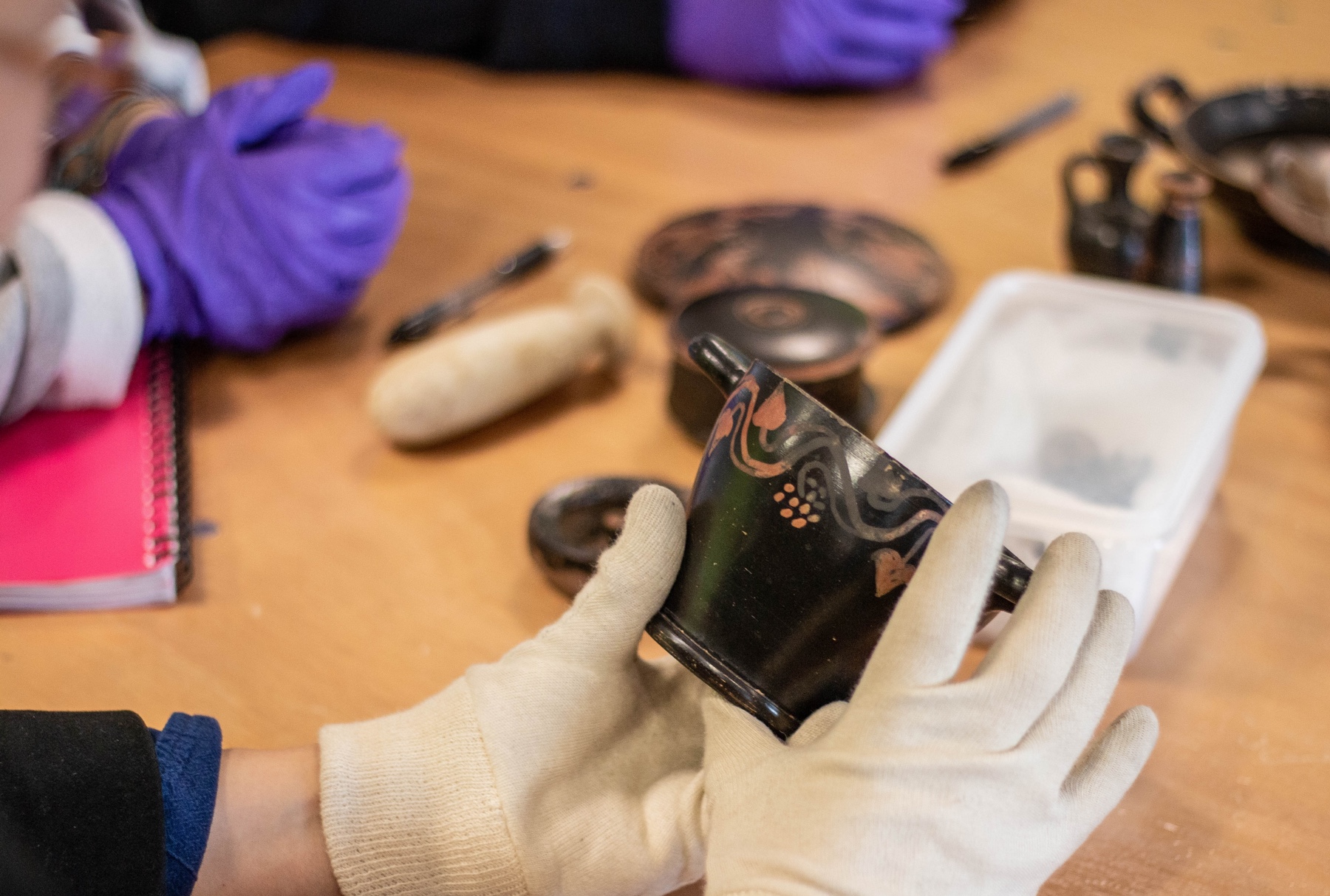Classics Research (UoA29)
Classics and Ancient History at Newcastle University is in the School of History, Classics, and Archaeology. The department has a long history of teaching Classics, as well as producing research that has an impact around the world. We have been teaching Classics at Newcastle University since 1874. We pride ourselves on outstanding research and teaching in this area, and our work is internationally recognised.
Classics and Ancient History at Newcastle University is in the School of History, Classics, and Archaeology. The department has a long history of teaching Classics, as well as producing research that has an impact around the world.
A proud history of Classics research
We have been teaching Classics at Newcastle University since 1874. We pride ourselves on outstanding research and teaching in this area, and our work is internationally recognised.
Our researchers
We are returning 16 colleagues to REF2021, after a significant expansion of the department in recent years.
As well as research staff, the department is also home to an international community of postdoctoral researchers and postgraduate students. They contribute significantly to our intellectual environment and the organisation of international research events.
Staff in the department have produced work of international importance. This includes monographs, critical editions, articles in prestigious journals, and collective volumes. Many of our team also serve on the editorial boards of leading scholarly journals and book series in the field.
Our wide-ranging Classics research
Our work ranges from the Late Bronze Age to the seventh century CE. Our Classics research interests centre around the languages, history, and cultures of ancient Greece and Rome.
We investigate:
- how people lived in the ancient past
- how ancient civilisations influenced later periods in history
We do this using a range of evidence. This can include literature, material, or visual remains, or a combination of all three.
Geographically, our work is mainly focused on the Graeco-Roman stretch of the Mediterranean. However, our Classics research also reflects how Greek and Roman culture affected other parts of the world, including Egypt, Central Asia, and the North of Britain.
Collaborative and interdisciplinary research
Our main areas of collaborative research activity include:
- ancient historical writing and its reception in the modern day
- performativity in ancient literature (especially epic and rhetoric)
- the political and intellectual history of the Hellenistic world
- the administrative and legal history of the Roman world
We also have an established international profile in areas including the history of classical tradition and classical scholarship.
Our department is in a School that includes Archaeology and History alongside Classics, which also helps to encourage interdisciplinary research. We play a leading role in several of the School’s Research Strands, notably Writing of History and Performance.
Funded Classics research
The Unit received over £350,000 in external funding in the period from 2014 to 2020. This came from a wide range of funders, including:
Collaborative work
We run major collaborative impact projects with partners outside the University, including:
A key part of our impact and outreach work focuses on the North East of England. However, we are also committed to making a difference more broadly around the world.
Equality, diversity and inclusion
We are strongly committed to promoting equality, diversity, and inclusion in our working practice at all levels. We strive to create a diverse and inclusive environment that is welcoming for everyone to work in. This nurtures our community to produce their world-leading research.
Colleagues from our department played a key role in developing the Athena Swan application that led to the School receiving a Bronze Award in May 2020.
Research case studies
Stories from the Frontier: Changing Heritage Practice and Visitor Experience Through Game-Play
This innovative and cross-disciplinary project has had considerable impact on:
- education
- the heritage sector
- the outreach work of the videogaming industry
With the Vindolanda Trust, we produced a digital mystery game. It supported the Key Stage 2 National Curriculum and addressed challenges faced by heritage sites. One example of this was by increasing digital tourism.
We work in collaboration with the Trust and our industry partner Creative Assembly. We created digital activity packs based on the game to support online learning during the pandemic.
The game and activity packs launched nationwide in October 2020 (Android) and December 2020 (iOS). Their learning impact has already been significant.
Using Museum Collections to Inform Public Understanding of the Ancient Greek and Etruscan Past
Waite’s research has enhanced our understanding of Greek and Etruscan archaeology. This work benefits hundreds of thousands of museum and heritage site visitors, particularly in the North of England.
They achieved this through the development and delivery of a community curriculum for teaching ancient Greece at Key Stage 2.
This covered primary schools, the Great North Children’s Hospital and the Great North Museum enhanced by a series of exhibitions.
We work with important museum collections, including:
- Kent Collection
- Mercer Art Gallery, Harrogate
- Shefton Collection, Great North Museum, Newcastle upon Tyne
We often partner with English Heritage and Tyne and Wear Archives and Museums. Waite's research has also influenced practice within these museums and cultural organisations.
